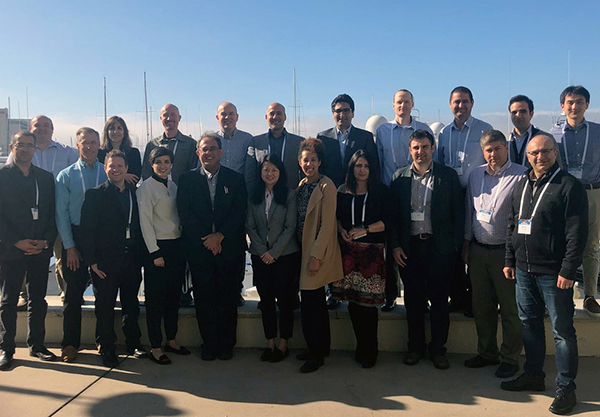Lemonade from lemons: Despite COVID-19 sidelining of MEMS showcase, proceedings and papers quickly published
The 20th Solid-State Sensors, Actuators, and Microsystems Hilton Head Workshop was scheduled for May 31–June 4, 2020, at the Sonesta Resort on Hilton Head Island, S.C., with Mina Rais-Zadeh of the NASA Jet Propulsion Laboratory as general chair, University of Maryland Professor Reza Ghodssi (ECE/ISR) as technical program chair, and Ryan Sochol (ME) on the Technical Program Committee. Unfortunately, like most academic conferences in the spring of 2020, it was canceled due to the COVID-19 pandemic. Now, papers that would have been presented at this workshop have been gathered into a special issue of the IEEE Journal of Microelectromechanical Systems. IEEE JMEMS Special Proceeding for the Hilton Head 2020 Workshop was published as Volume 29, Issue 5, in October 2020. The 2020 workshop was to have featured innovations that enhanced its key mission of excellence in showcasing recent innovative work and offering strong networking opportunities. Ironically, given COVID-19, the workshop was to have a strong focus on “Health Grand Challenges,” with four internationally known experts from outside the MEMS/Microsystems community as keynote speakers. These speakers were to have encouraged MEMS research to benefit societal causes such as public health, robotic-assisted surgery, and gastrointestinal tract and brain imaging. In addition, the workshop would have been an international meeting for the first time, with representatives from multiple regions in North America on the Technical Program Committee (TPC). There also was a strong focus on cultivating the impact of MEMS on global issues and grand challenges. There would have been a full-day short course on “Microsystems Frontiers in the IoT Era,” as well as four invited speakers, each introducing a grand challenge topic. With the workshop cancelled, the organizers focused on getting all the accepted (i.e., 30% acceptance rate) conference and late news papers to go through an accelerated, yet rigorous peer-review process according to IEEE Journal Practices. Three associate editors and 30 committed international reviewers dedicated themselves to the work necessary to publish the special proceeding in 2.5 months. The result is an archival representation of what the workshop would have been. The special issue contains 69 full JMEMS papers that are extended versions of the papers accepted by the TPC members when they met in person in February 2020; and another 18 JMEMS letters that were late news submissions highlighting the most recent achievements in the field. “In retrospect, the cancellation of our unique meeting seems like a very small dot/setback in our diaries,” Ghodssi says. “Despite everything that is going on today, we cannot help but be optimistic for a brighter and better outlook ahead. In our own research and educational activities, we expect grand challenges and causes, especially health grand challenges, to come to the forefront as a driving force. Most importantly, this future will be a balanced representation of our diverse communities and regions where we hope to see everyone’s voice and life matter.” Ghodssi is now the president-elect of the Transducer Research Foundation, which sponsors the workshop. “We cannot wait to meet again on Hilton Head Island in June 2022,” he says. “We will talk about how determined we all are to change the world for the better so that the next generation of MEMS students, faculty, scientists, and entrepreneurs will be better prepared to address future grand challenges.”
Related Articles: November 23, 2020 Prev Next |


